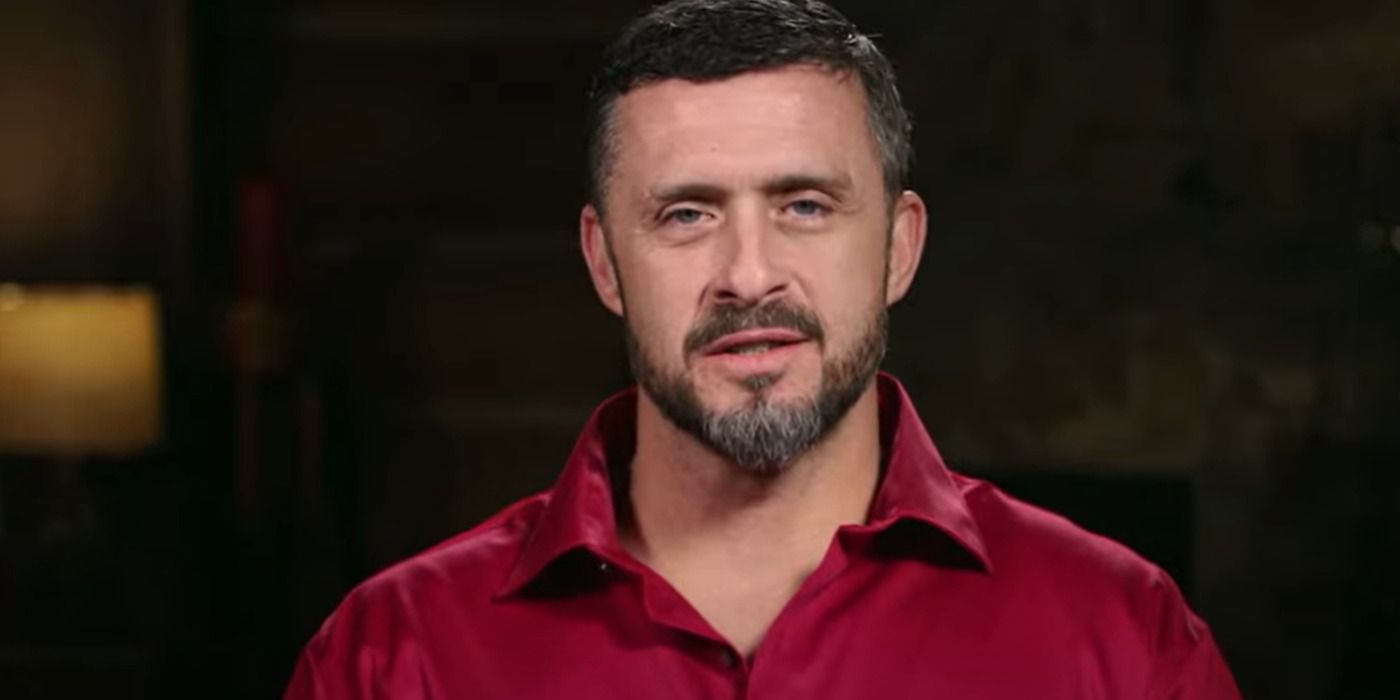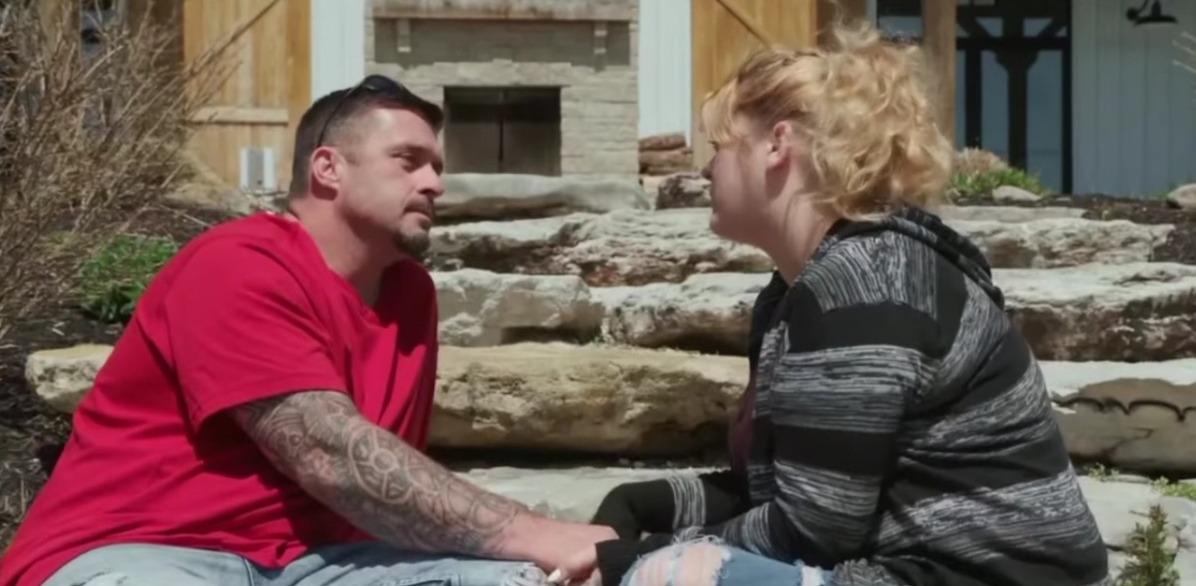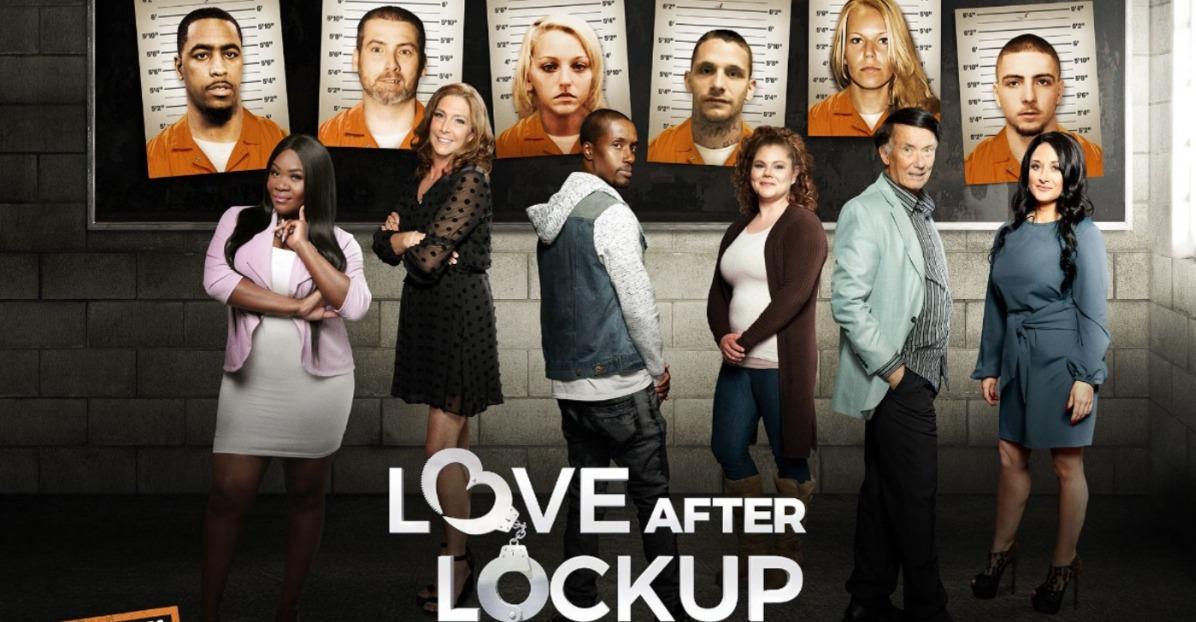Chance On Love After Lockup: A Journey Through Reality TV And True Romance
Reality TV has become a cultural phenomenon, captivating millions of viewers with its dramatic storylines and unforgettable characters. Among the many shows that have emerged in recent years, "Love After Lockup" stands out as a unique and compelling series that explores the complexities of relationships between formerly incarcerated individuals and their partners. This show delves into the challenges, triumphs, and emotional journeys of those seeking love after being released from prison. For many, this chance on love after lockup represents not just a second chance at romance, but also at life itself.
With its raw and unfiltered portrayal of real-life relationships, "Love After Lockup" has sparked conversations about forgiveness, redemption, and the power of love. The show offers a window into the lives of individuals who are often misunderstood or stigmatized by society, shedding light on their struggles and triumphs. As viewers tune in week after week, they witness the highs and lows of these relationships, gaining a deeper understanding of the challenges faced by those re-entering society after incarceration.
This article will explore the world of "Love After Lockup," examining its impact on popular culture, the realities of relationships post-incarceration, and the personal stories of those featured on the show. We will also delve into the psychological and societal factors that influence these relationships, providing insights into the complexities of love and redemption.
- Kelly Clarkson Red Carpet
- Mercury Square Uranus Astrology
- Scott Disick Addiction
- Demi Moore Shingles
- Elizabeth Taylor Mike Todd
Table of Contents
- Overview of Love After Lockup
- Biographies of Key Participants
- Challenges Faced by Couples
- Psychology of Relationships Post-Incarceration
- Societal Impact and Stigma
- Success Stories and Inspirational Journeys
- Statistics and Data on Incarceration and Relationships
- Media Reception and Criticism
- Future Directions and Potential Changes
- Conclusion and Final Thoughts
Overview of Love After Lockup
"Love After Lockup" premiered in 2018 and quickly became a sensation, drawing millions of viewers with its candid portrayal of relationships between formerly incarcerated individuals and their partners. The show follows couples as they navigate the challenges of rebuilding their lives together after years apart. Each episode delves into the emotional, financial, and social hurdles faced by these couples, offering a glimpse into the realities of life post-incarceration.
One of the key elements that sets "Love After Lockup" apart is its focus on authenticity. Unlike other reality shows that may rely on scripted drama, this series presents real-life situations and raw emotions. The couples featured on the show often share their vulnerabilities, fears, and hopes, creating a connection with viewers who are invested in their journeys.
Why "Love After Lockup" Resonates with Viewers
The show resonates with audiences because it tackles universal themes such as love, forgiveness, and resilience. It challenges viewers to reconsider preconceived notions about individuals with criminal records, highlighting their humanity and potential for positive change. By showcasing the personal stories of these couples, "Love After Lockup" encourages empathy and understanding, fostering a more compassionate view of those affected by the criminal justice system.
- Natasia Demetriou Children
- Woman Bites Flight Attendant
- Natalie Portman Breast Implants
- Simone Biles Outfit Bears
- Latto Fat
Biographies of Key Participants
Some of the most memorable participants on "Love After Lockup" have become household names, each with their own unique story to tell. Below is a brief overview of a few key individuals featured on the show:
Participant Biographies
| Name | Age | Years Incarcerated | Current Status |
|---|---|---|---|
| Michael Carter | 38 | 15 years | Rehabilitation counselor |
| Jasmine Taylor | 32 | 8 years | Entrepreneur |
| Anthony James | 45 | 20 years | Community activist |
These individuals, along with many others, have used their experiences on the show to inspire others and advocate for change in the criminal justice system.
Challenges Faced by Couples
The couples on "Love After Lockup" face numerous challenges as they work to rebuild their lives together. These challenges include:
- Trust Issues: Rebuilding trust after years of separation can be difficult, especially when one partner has been incarcerated.
- Financial Struggles: Many formerly incarcerated individuals struggle to find employment, making it hard to support their families.
- Social Stigma: Society often views those with criminal records negatively, creating additional barriers to success.
- Emotional Healing: Both partners must work through past traumas and emotional scars to create a healthy relationship.
Overcoming Obstacles Together
Despite these challenges, many couples on the show have found ways to overcome obstacles and build stronger relationships. By communicating openly and supporting each other, they demonstrate the power of love and determination in the face of adversity.
Psychology of Relationships Post-Incarceration
Understanding the psychological factors that influence relationships post-incarceration is crucial to appreciating the dynamics portrayed on "Love After Lockup." Research has shown that individuals who have been incarcerated often experience feelings of isolation, shame, and self-doubt. These emotions can impact their ability to form and maintain healthy relationships.
Furthermore, partners of formerly incarcerated individuals may also struggle with their own emotions, such as fear, resentment, and uncertainty about the future. Therapy and counseling can play a vital role in helping both partners navigate these challenges and develop healthier coping mechanisms.
Key Psychological Insights
- Formerly incarcerated individuals may experience post-traumatic stress disorder (PTSD) related to their time in prison.
- Partners may struggle with feelings of abandonment or betrayal during the incarceration period.
- Rebuilding trust and communication is essential for successful relationships post-incarceration.
Societal Impact and Stigma
The societal stigma surrounding formerly incarcerated individuals can have a significant impact on their ability to reintegrate into society. This stigma often manifests in the form of discrimination in employment, housing, and social interactions. As a result, many individuals face additional barriers to success, making it harder for them to rebuild their lives.
"Love After Lockup" plays an important role in challenging these stereotypes and promoting a more compassionate view of those affected by the criminal justice system. By showcasing the personal stories of these individuals, the show encourages viewers to reconsider their biases and advocate for change.
Breaking Down Barriers
Efforts to reduce stigma and promote rehabilitation include:
- Community programs that provide support and resources for formerly incarcerated individuals.
- Legislative changes aimed at reducing discrimination against those with criminal records.
- Public awareness campaigns that highlight the humanity and potential of formerly incarcerated individuals.
Success Stories and Inspirational Journeys
Despite the challenges faced by couples on "Love After Lockup," many have achieved remarkable success in their personal and professional lives. These success stories serve as inspiration to others who may be navigating similar situations.
For example, Michael Carter, a participant on the show, has become a rehabilitation counselor, using his experiences to help others reintegrate into society. Similarly, Jasmine Taylor has launched a successful business, demonstrating the entrepreneurial spirit that can thrive even after incarceration.
Inspiring Others to Take Action
These success stories highlight the importance of perseverance, determination, and support in achieving positive outcomes. They also underscore the need for systemic changes to support those re-entering society after incarceration.
Statistics and Data on Incarceration and Relationships
Data from various studies and reports provide valuable insights into the realities of incarceration and its impact on relationships. For example:
- Approximately 2.3 million people are currently incarcerated in the United States, according to the Prison Policy Initiative.
- More than 5 million children in the U.S. have had a parent incarcerated at some point in their lives.
- Formerly incarcerated individuals face a recidivism rate of around 43% within three years of release, according to the Bureau of Justice Statistics.
These statistics underscore the importance of addressing the root causes of incarceration and providing support for those re-entering society.
Media Reception and Criticism
Since its debut, "Love After Lockup" has received both praise and criticism from media outlets and viewers alike. Critics argue that the show exploits the personal stories of its participants for entertainment purposes, while supporters contend that it raises awareness about important issues and promotes empathy.
Despite the mixed reception, the show has undoubtedly sparked important conversations about the criminal justice system and its impact on individuals and families. By highlighting the personal stories of those featured on the show, "Love After Lockup" encourages viewers to think critically about these issues and consider ways to effect positive change.
Addressing Criticism
To address criticism, the producers of "Love After Lockup" have emphasized their commitment to authenticity and transparency. They have also worked to provide resources and support for participants, ensuring that their experiences on the show contribute positively to their lives.
Future Directions and Potential Changes
As "Love After Lockup" continues to evolve, there are opportunities to expand its focus and address additional issues related to incarceration and relationships. Potential changes could include:
- Incorporating more diverse perspectives and stories from different communities.
- Highlighting successful reintegration programs and advocacy efforts.
- Providing resources and support for viewers interested in learning more about these issues.
By continuing to push boundaries and challenge societal norms, "Love After Lockup" can play an even greater role in promoting understanding and change.
Conclusion and Final Thoughts
"Love After Lockup" offers a powerful and poignant look at the challenges and triumphs of relationships post-incarceration. Through its candid portrayal of real-life stories, the show encourages empathy, understanding, and advocacy for those affected by the criminal justice system. As viewers continue to tune in, they gain a deeper appreciation for the complexities of love, redemption, and second chances.
We invite you to share your thoughts and experiences in the comments below. Have you been touched by the stories on "Love After Lockup"? What changes would you like to see in the future? By engaging in these conversations, we can all contribute to a more compassionate and just society.
- Quinta Brunson Body
- Leo Gordon Jeff Gordon Son
- Ashley Massaro Survivor
- Nessa Diab Baby Name
- Pre Med Student Stabs Mom

Love After Lockup Chance Explains How He’s Related To Brad Pitt

Love After Lockup News Erna Kerrin

Will 'Love After Lockup' Season 5 Happen? Here's What We Know